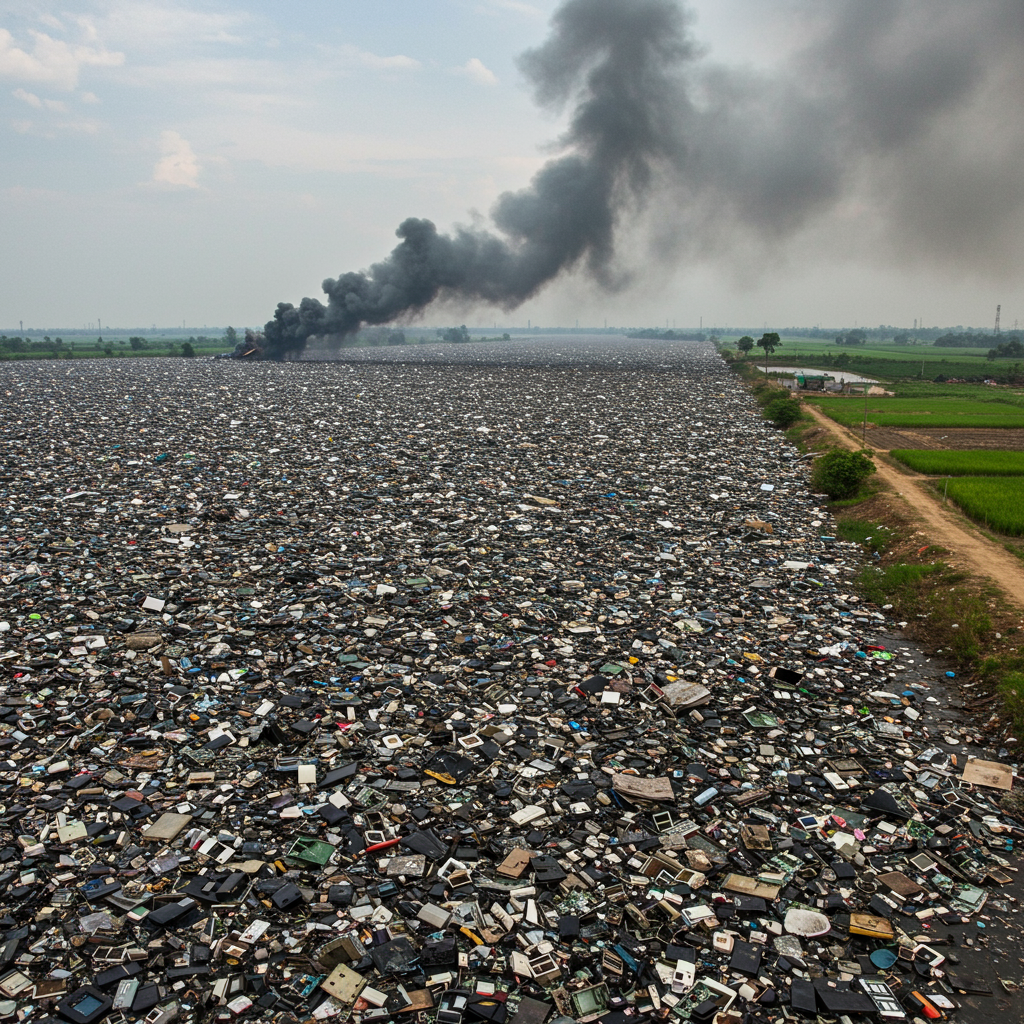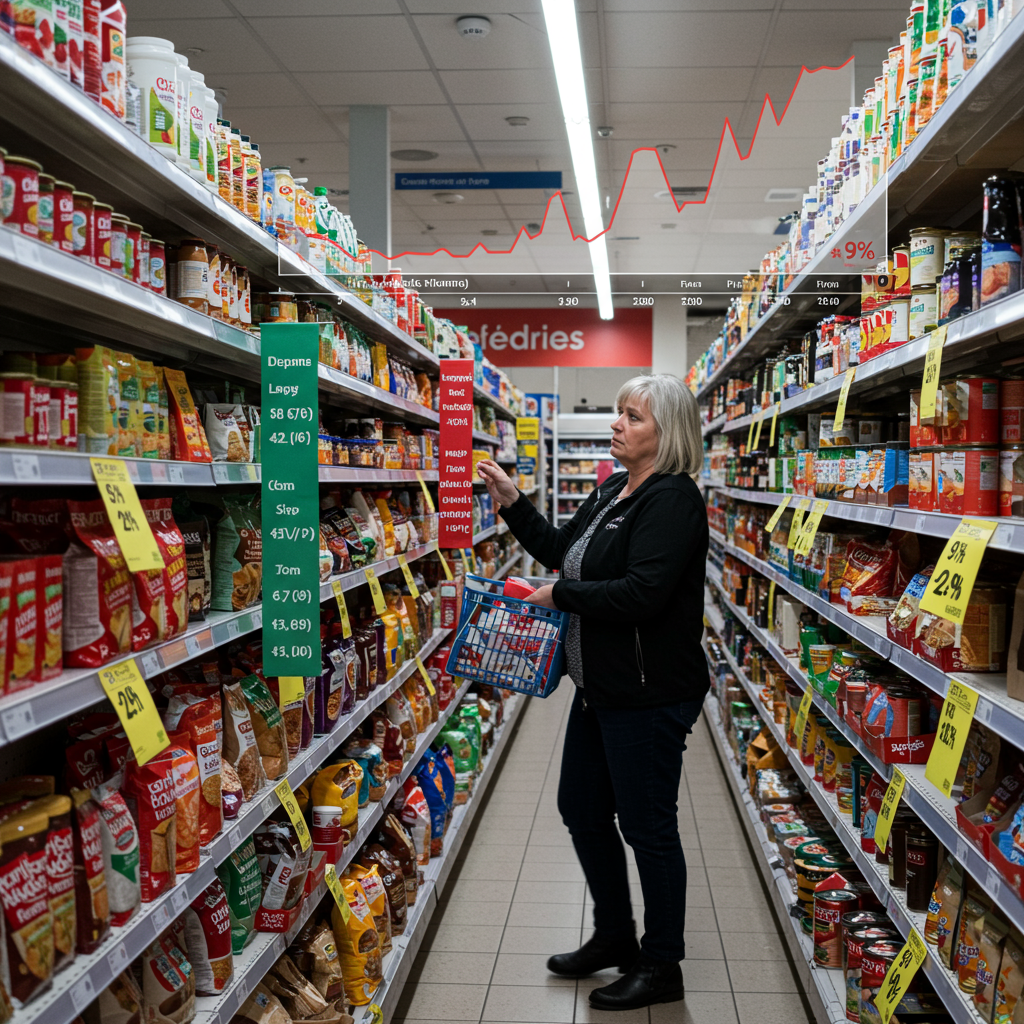Thailand is grappling with a rising flood of electronic waste (e-waste), much of it imported illegally and processed in clandestine facilities across the country. This toxic trade, fueled by the world’s discarded gadgets, including old mobile phones, is creating significant environmental pollution and health risks.
The problem has escalated dramatically since 2018, when China, previously the world’s largest e-waste recipient, banned imports. This forced global shippers to redirect their toxic cargo, with many facilities setting their sights on Southeast Asian nations like Thailand. Despite Thailand implementing its own import ban in 2020, the volume of electronic waste entering the country has surged twentyfold in the last decade. Environmental groups report figures jumping from around 3,000 tonnes annually before the Chinese ban to a staggering 60,000 tonnes today.
Much of this waste originates from affluent Western countries, particularly the US and the European Union, where consumers frequently upgrade devices like smartphones, computers, and other electrical goods. While many Western nations have laws against exporting toxic waste, these regulations are often circumvented. A common tactic involves mislabelling e-waste as “second-hand electronic goods for re-sale” to smuggle it across borders.
Once inside Thailand, this mislabelled waste often bypasses legitimate channels and ends up at unlicenced recycling plants. Many of these facilities are reported to be foreign-owned and deliberately located in remote, rural areas to evade detection by authorities.
Inside the Illegal Operations
At these illicit sites, mountains of discarded electronics – from circuit boards to old keyboards – are processed. Investigators describe cavernous warehouses filled with scrap. The waste is typically fed into giant crushing machines, reducing it to gravel-like material before being sent for smelting.
This smelting process is highly profitable, allowing operators to extract valuable metals such as copper, gold, and other minerals. Thai Industry Minister Akanat Promphan highlights that while millions of dollars worth of metal are retrieved, most of it is then exported, often back to countries like China, providing little economic benefit to Thailand itself.
Environmental and Health Devastation
The environmental cost of these operations is immense. The smelting of e-waste releases dangerous levels of mercury, lead, and toxic fumes directly into the air, soil, and water. These pollutants pose severe threats to both the environment and local communities.
Residents living near unlicenced facilities bear the brunt of the pollution. Farmer Seng Wongsena, whose land is in eastern Thailand, reported that polluted water from a nearby smelter has damaged his cassava crops, preventing them from flowering properly. He also described the noxious smell from the plant as so overpowering that it keeps him awake at night. Local environmentalists echo these concerns, demanding the closure of plants operating illegally.
International organizations are also highlighting the global implications. Jim Puckett of the Basel Action Network, an NGO campaigning against toxic waste shipments, warned that importing such hazardous materials inevitably leads to the contamination of local soil and endangers people’s health.
Thailand’s Fightback
The Thai government is actively trying to combat this escalating problem. A special task force from the industry ministry regularly conducts raids on unlicenced facilities. Teams of inspectors collect samples of the waste for analysis, gathering evidence needed to shut down illegal operations. Despite these efforts, the sheer volume and clandestine nature of the trade make it a difficult battle.
Minister Promphan has expressed strong commitment to a “full-on crackdown” to drive these illegal businesses out, describing them as turning parts of Thailand into “an international garbage processing facility.”
Recognizing the complexity and scale of the issue, Thailand is also looking to future legislation. The government is planning to enact a new law, potentially by late this year or early next, that would place more responsibility on the manufacturers of electronic goods – major global companies like Apple, Samsung, Dell, and Hewlett Packard – for the responsible disposal and recycling of their products at the end of their life cycle.
A Global Challenge
Thailand’s struggle is symptomatic of a much larger global crisis. The United Nations reports that worldwide e-waste production is soaring, reaching over 60 million tonnes annually – double the amount from just 15 years ago. This figure is projected to increase by more than 30% by the end of the decade. Alarmingly, less than a quarter of this global e-waste is collected and recycled responsibly, with the rate of new e-waste generation far outstripping recycling efforts.
As the world continues to embrace new technologies and upgrade gadgets more frequently, the challenge of managing electronic waste responsibly will only intensify, making Thailand’s fight against the toxic tide a critical part of a global environmental imperative.



